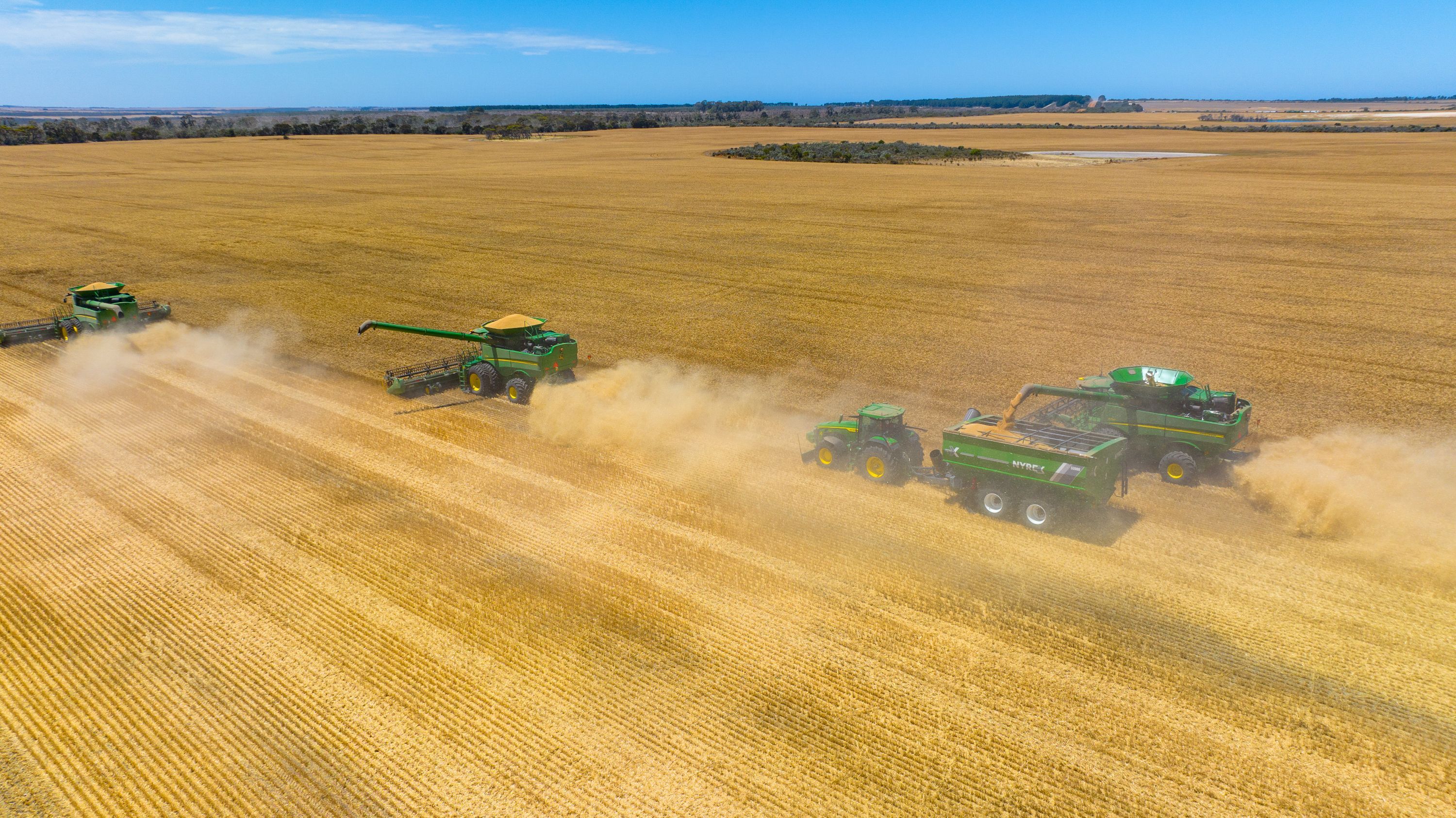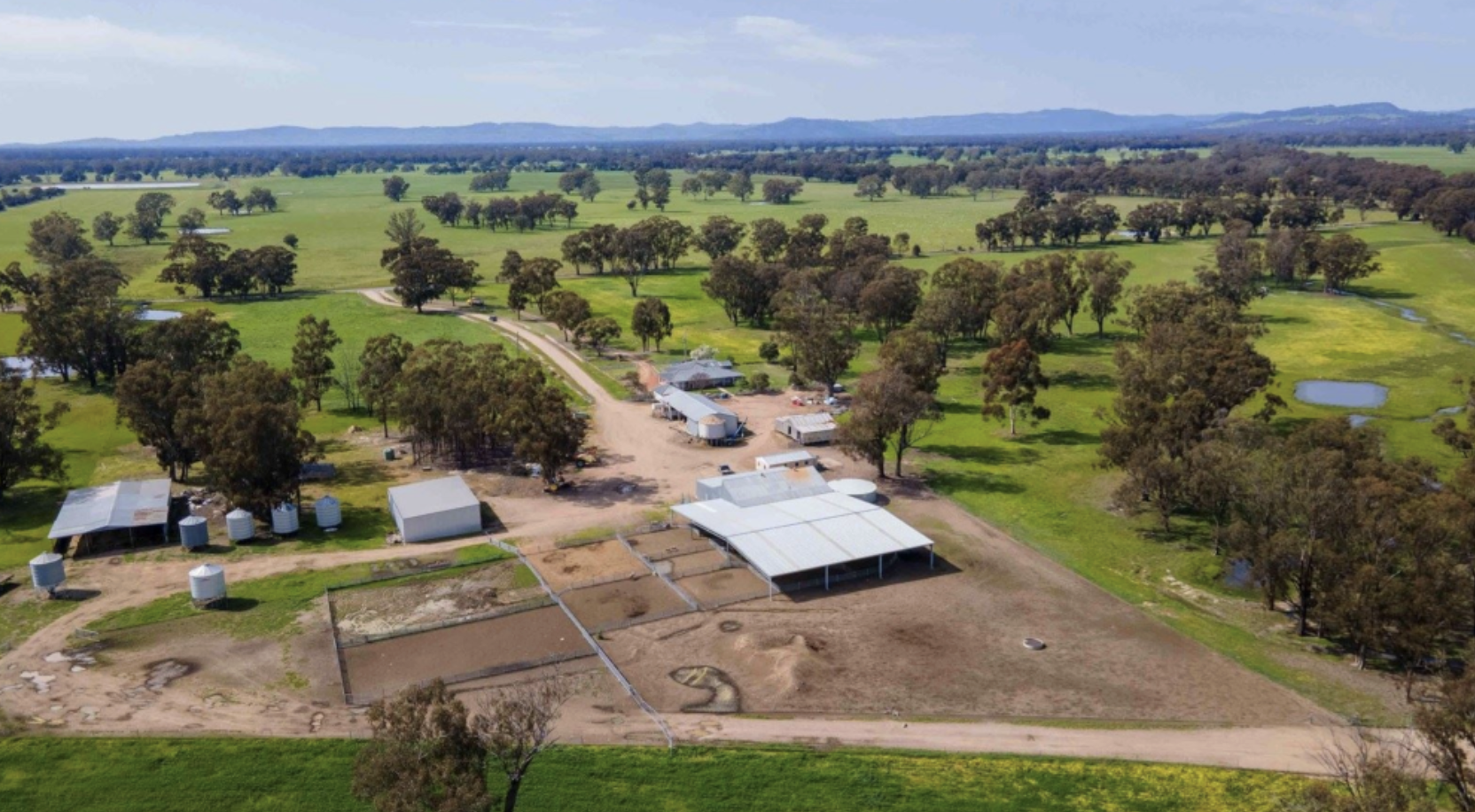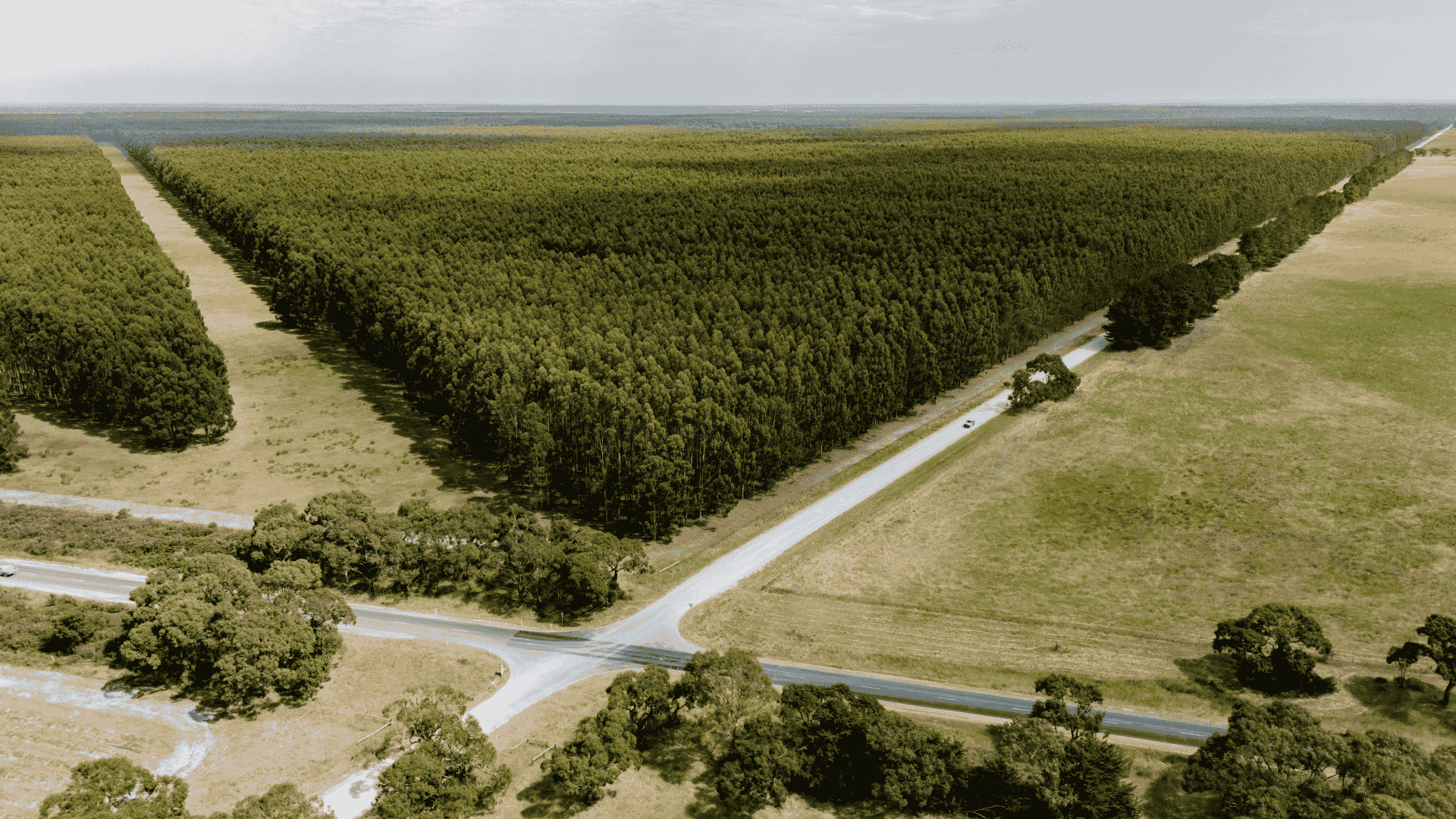Rolfe family’s Maffra North hits market with $8.5 million-plus price guide
In this week’s property round-up with Kylie Dulhunty: the Rolfe family lists Maffra North with an $8.5 million-plus guide, US-backed 40 South...
6 min read
 Kylie Dulhunty
:
May 29, 2025
Kylie Dulhunty
:
May 29, 2025

Australia’s agricultural land has outperformed all other major property asset classes over the past 20 years, with values rising an average of 256%, according to the inaugural Australian Property Institute (API) Valuation Insights Report.
That figure dwarfs the growth seen in other sectors: residential property values rose 154%, industrial assets climbed 164%, and commercial properties increased 143% over the same period.
“Tasmania was the strongest performer with a return of 689% in capital growth, followed by Victoria with 362% and NSW and Queensland at 332%,” the report found.
But it was Victoria’s Wimmera region that topped the national leaderboard with a staggering 802% increase in farm values since 2004, making it the best-performing property region in the country.

Over the past decade alone, the NSW Central West region led the field with a 527.8% increase.
“Perfect seasons and record commodity prices turbocharged farm values,” the report noted, pointing to a rare combination of high profitability, plentiful rainfall and low interest rates.
Preston Rowe Paterson valuer Alan Hives called it a “generational, maybe once in a century’’ event.
API CEO Amelia Hodge said the findings revealed farming’s vital role in the nation’s wealth and food security.
“Despite the vast bulk of immigrants surging into Sydney and Melbourne over this period, the results suggest the impact of migration on Australian domestic property prices may not be as pronounced as other unseen factors,” she said.
The report also highlights future challenges, including succession planning, labour shortages and the growing influence of renewable energy and carbon farming on rural valuations.

CBRE Agribusiness Director Andrew Loughnan said succession planning loomed as a major challenge for many farming families after seven years of end-to-end growth in capital values for rural land.
“There is an emergence of what we call the family corporates, and they have a real issue coming up because these assets have appreciated significantly,” he said in the report.
“Succession issues are front of mind.
“Not long ago they were looking at a portfolio that could be worth $50 million and now they are looking at a portfolio that could be $350 million… and that is one lifetime.’’

Size: 9,048ha
Location: South Coast WA
Sale method: EOI closing 12pm (AWST) on July 10
Price guide: More than $90 million
One of Western Australia’s premier cropping aggregations has hit the market, with LAWD launching a sales campaign for the 9,048ha Lake Shaster portfolio, which has a price guide of more than $90 million.
Located 115km west of Esperance in the high-rainfall South Coast region, Lake Shaster is being offered as a whole or in two separate parcels.
Lake Shaster North comprises 4,727ha, while Lake Shaster South is 4,321ha.
Combined, 6,985ha, or about 77 per cent, of the aggregation is arable and currently under high-value cereal and oilseed production.
The properties are owned by Australian expats Paul and Deidre Cowan of Arkle Farms, who are progressively consolidating their extensive Australian holdings.
Lake Shaster was previously part of the broader “Project Jaal” portfolio, which in 2023 included more than 16,000ha across WA and Victoria.
Significant infrastructure supports the aggregation’s operations, including 2,082 tonnes of grain silo storage, a 1,350-tonne fertiliser shed, three machinery sheds, a workshop, and multiple accommodation facilities including a main homestead, workers’ cottages, and seasonal worker quarters.

Cattle yards are also in place, with capacity for up to 750 head combined, across both holdings.
LAWD Director Simon Wilkinson said extensive capital works had added significant value to the aggregation.
“Lake Shaster has undergone significant capital works that have been undertaken on both properties, focusing on soil amelioration and earthworks for land class development,” Mr Wilkinson said.
“Given infrastructure, rainfall, location and proximity to export ports Lake Shaster is well suited to a conducive range of agricultural pursuits.”
The offering is expected to attract broad interest from institutional and private buyers.
“Lake Shaster Aggregation is available in one line or as two separate parcels,” Mr Wilkinson said.
“It will suit purchasers from North American investment pension funds, European families, Australian superannuation funds, Australian high net worth individuals and existing farmers in the South Coast region.”
Lake Shaster is for sale via expression of interest closing 12pm (AWST) on July 10.

Size: Dairy 4.2ha, 5 additional lots totalling 78.25ha
Location: Jervois, South Australia
Sale method: EOI closing June 11 at 4pm ACST
Price guide: N/A
A major South Australian dairy and farming asset has hit the market, with the Jervois Beston Dairy site and associated rural land now for sale following the collapse of Beston Global Food.
Acting under instructions from KPMG liquidators Tim Mableson, Gayle Dickerson and James Dampney, Colliers Agribusiness has been appointed to manage the sale of the expansive industrial holding and five rural parcels formerly operated by Beston Pure Dairies Pty Ltd, a subsidiary of Beston Global Food Company.
The site, which Beston acquired in 2015 after the collapse of United Dairy Power, was a key processing hub for the state's dairy sector.
However, following the group’s liquidation earlier this year, the facility now represents an opportunity for industrial repurposing or redevelopment.
“The dairy site presents as a great opportunity to secure an established industrial precinct with great access to both Murray Bridge and Adelaide,” Colliers Agribusiness executive Will Sumner said.
“Given the building costs today, we are witnessing a growing trend of repurposing established sites, rather than starting from scratch.”
The rural land parcels, mostly around 20ha in size, have long been used for dairy grazing.
“Given the size of the rural parcels, interest is expected from both locals looking to add to an existing holding as well as lifestyle purchasers,” Colliers National Director Tim Altschwager said.
The listing follows the South Australian Government's announcement of a $3 million support package for dairy farmers left out of pocket by Beston’s collapse.
The company owed 43 farmers $11.6 million, and the emergency funding is being administered by the South Australian Dairyfarmers Association.
The dairy site is offered separately, while the rural parcels can be purchased individually or together.
Expressions of Interest for the properties close on June 11 at 4pm ACST.

Size: 222ha
Location: Coomealla and Gol Gol
Sale price: Undisclosed
Duxton Vineyards has offloaded two of its NSW properties after hitting financial difficulties and mounting pressure from creditors.
The Hollands Lake Road and Gol Gol vineyards, in Coomealla and Gol Gol respectively, span more than 222ha near Mildura, have been sold, though details of the buyer and sale price remain confidential.
When listed in September 2024, the properties were expected to fetch $25,000 to $30,000 per hectare - a combined estimated value of about $5.5 million including water delivery entitlements.
The vineyards were planted to shiraz, chardonnay, merlot, pinot grigio and cabernet sauvignon, and included 1,592 delivery entitlements across 16 titles.
At the time of listing, Duxton offered a grape supply contract as part of the sale to attract industry players and expansion-focused investors.
Duxton Vineyards, led by former Deutsche Asset Management executive Ed Peter, owns and operates about 2400ha across the Southern Murray Darling Region.
But in August 2024, the company warned creditors it may be unable to meet payment obligations and announced the sacking of 13 staff, citing continued challenges for the Australian wine industry.
The vineyards’ sale follows wider upheaval within the Duxton investment group.
In late 2024, The Australian Financial Review reported that Duxton had begun divesting assets, including a $70 million sale of its Timberscombe property and plans to sell or lease its Adelaide Hills headquarters, Duxton House.
Other Duxton entities, including Duxton Apples and Duxton Winery Buronga, also flagged delayed solvency declarations.
Despite its financial troubles, Duxton maintains that its various agri-businesses operate independently, with no cross guarantees between them.
The move is the latest in a series of asset sales aimed at shoring up Duxton’s operations and repositioning its portfolio amid challenging market conditions.

Size: 1961ha
Location: Inverell, NSW
Sale method: EOI closing July 3
Price guide: N/A
A premier mixed-farming property in NSW’s Northern Tablelands is being offered to the market, with agents describing it as an exceptional opportunity for graziers seeking productivity, environmental stewardship and long-term growth.
Rockleigh Station, spanning 1,961ha near Inverell, combines improved pastures, fodder cropping and secure water resources to support around 15,000 DSE or 1,000 cows and calves.
The property benefits from 846mm average annual rainfall and a strong environmental and operational foundation.
LAWD director George Barton said Rockleigh had been well developed for both cattle and sheep production, with infrastructure allowing flexibility in enterprise focus.
“Rockleigh is situated in the heart of the renowned Sapphire district, and blends scale with versatility thanks to infrastructure which enables production to pivot between cattle and sheep,” Mr Barton said.
“There’s also genuine upside to the sale with neighbouring properties open to discussions around expansion, which presents an exciting growth opportunity for potential buyers.”
A highlight of the property is its extensive exclusion fencing, with 22km installed to reduce feral pest pressure and promote biodiversity.
This infrastructure protects pasture productivity while supporting wider sustainability goals.
Rockleigh also features a Conservation Agreement with the NSW Biodiversity Conservation Trust, covering 304ha.
Entered into in 2019, the agreement supports native vegetation protection and habitat enhancement, with ongoing funding available to maintain the area.
The property’s water security is underpinned by three equipped bores, 31 dams, surface water rights and natural creeks, supported by an extensive tank and trough reticulation system.
Infrastructure includes modern sheep and cattle yards, a woolshed, feedlot pens, machinery sheds, grain storage and a private airstrip.
Rockleigh also boasts quality housing, including the four-bedroom Lochbuie Homestead and additional staff accommodation.
Rockleigh Station is for sale via Expression of Interest, closing July 3.
Kylie Dulhunty is a journalist with more than 20 years experience covering everything from court to health. Today, Kylie loves nothing more than turning market trends, industry insights and epic property sales - residential, rural and commercial into captivating stories
Posts By Tag
.png)
In this week’s property round-up with Kylie Dulhunty: the Rolfe family lists Maffra North with an $8.5 million-plus guide, US-backed 40 South...

In this week’s property round-up with Kylie Dulhunty: A diverse line-up of significant rural listings and sales, spanning a landmark Balmullin...

In this week’s property round-up with Kylie Dulhunty: Wattle Range Portfolio offers institutional-scale opportunity in South Australia’s...